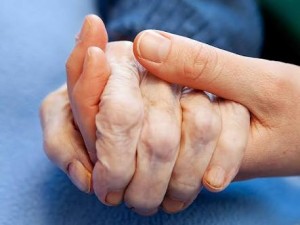Leaving a Wisdom Legacy
‘Although the physicality of death destroys us, the idea of death saves us’. – Martin Heidegger

In my early 20’s I volunteered at a hospice. The training I undertook was intense and I was eager to get front line, to put theory into practice. On my first day I reported to a senior volunteer who looked me up and down and pronounced, “you’re a man! What would you know about flower arranging?” I must have looked blank because eventually she said “Go offer people cups of tea and keep them company”. That was more like it. That’s what I wanted to do, be with the dying.
My motivation was to be of service to those in need which has always existed since I can remember but also I needed answers. I had suffered the excruciating pain of losing a loved one a few years earlier and thought that if I positioned myself right at the event horizon that perhaps I could learn about this great mystery.
I would make the patients a warm drink and ask if they wanted company for a while. I was amazed at how forthcoming people were about their experience of dying. I would be quite frank in my questions of respectful inquiry such as “What do you think about as you lie here waiting?” and “What does it feel like to be dying?” Many people react with shock when I tell them this as there is a general sense that we need to tiptoe around people during their time of suffering. But there is something very different about this approach that rarely is offered to palliative patients.
The typical experience of a palliative patient is that everyone is trying to keep them comfortable. Clinicians ask questions are about their physical symptoms and sometimes their psycho-emotional state with the intent to reverse the symptoms. But what I was doing back then was presenting myself as a fellow mortal being who will experience dying as well one day. To me there is no more genuine form of listening than that of a student with an open mind and heart asking for an experience to be shared. Instead of the clinical ‘tell me what’s wrong and while you’re telling me I’ll be thinking about how to label your experience and then provide you with the solution’.On our death bed our legacy becomes more important than ever to us as it helps soothe the psychological conflict that is ‘my preference to live’ versus ‘my death is inevitable’. Legacy is one of the ways we attempt to influence our symbolic immortality. Leaving a legacy means that in some way we have contributed to our world and that the impact of our contribution will continue once we are gone. As we grow older this becomes more important to our meaning and purpose in life.
What most people don’t consider is that their act of dying is also an opportunity to teach and give. By sharing their thoughts and feelings of their experience (both the light and dark) as their life comes to an end, they offer a lasting message to those who listen. For all of us are fellow mortal travellers who will also come to this experience soon enough.
Existential psychiatrist Irvin Yalom interprets Heidegger’s statement that ‘although the physicality of death destroys us, the idea of death saves us’ to mean that a recognition and acceptance of our death can “transport us from a mode of living characterised by diversions, tranquilisation and petty anxieties to a more authentic mode.” From my time working in palliative care I can honestly say that even though my original intention was to learn about the mystery of death, I have learnt more about the beauty of life.